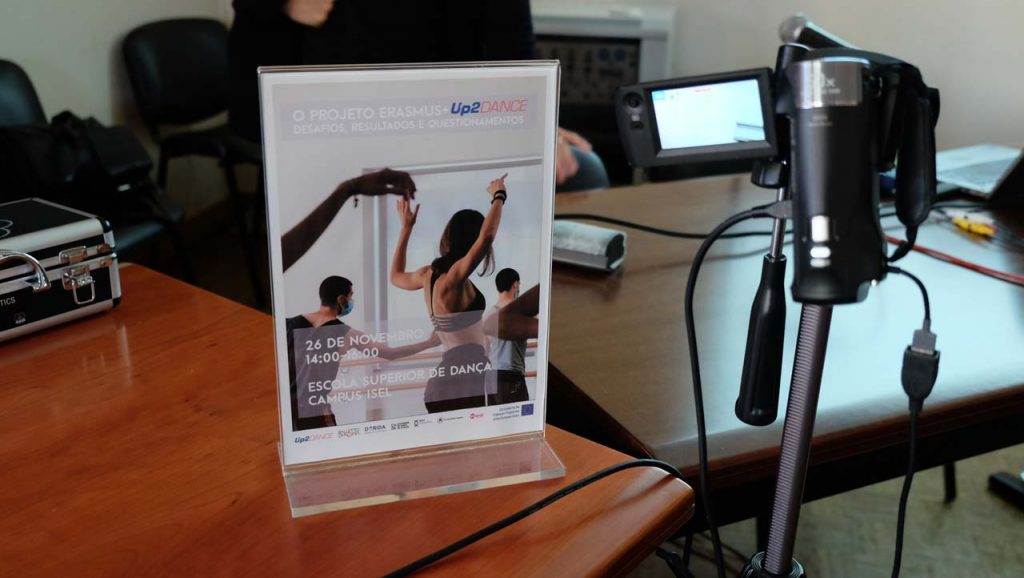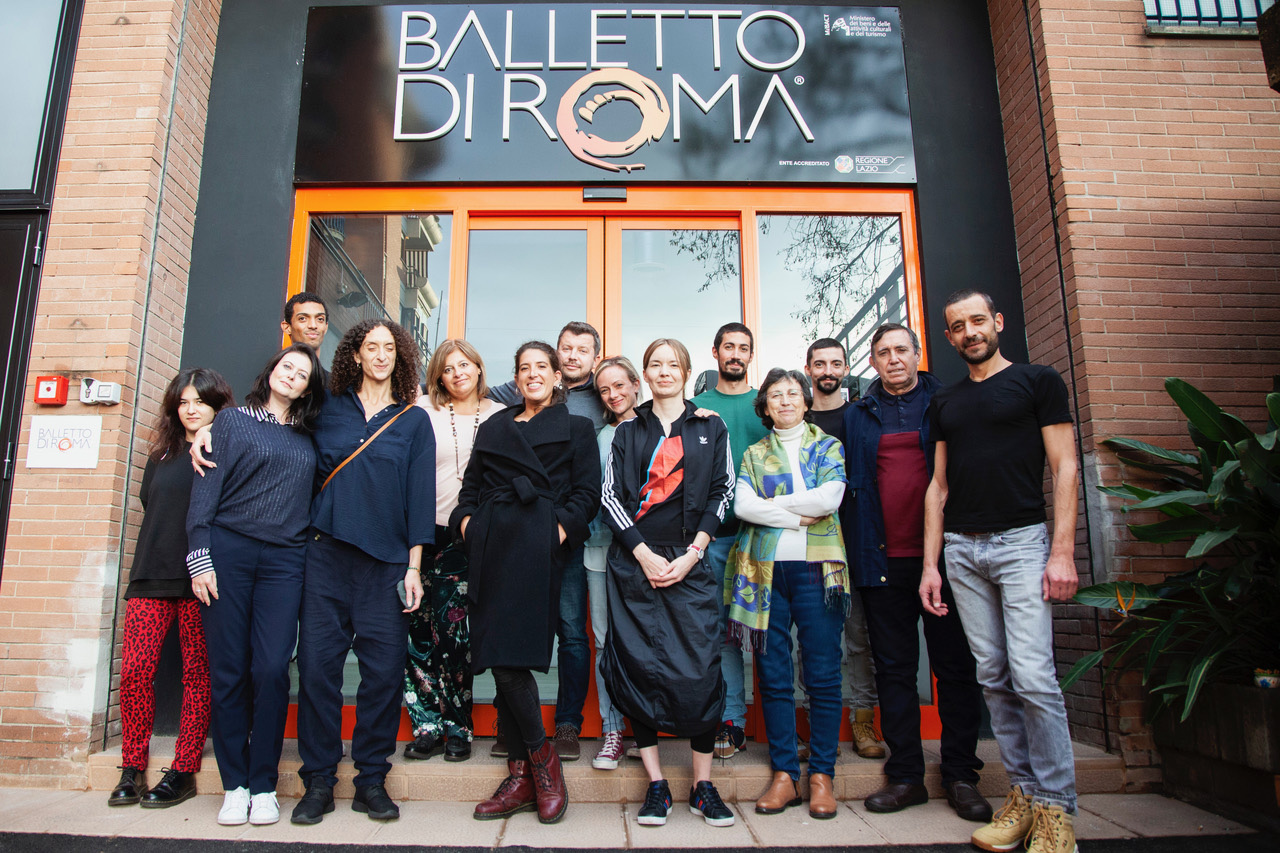
Final national event
In order to disseminate the project results, each partner organized a final national event during...

NOVEMBER 29th, 15 pm CET, on Zoom platform (details below)
The “UP2DANCE Updating professional profiles towards contemporary dance – FINAL CONFERENCE” will be held on Monday 29 November 2021, on Zoom Platform, from 15:00 CET. The project was supported by the ERASMUS+ Program of the European Union and realized in collaboration between six European dance companies: Balletto di Roma (Italy), Derida Dance Center (Bulgaria), Magenta Consultoria (Spain), Polish Dance Theatre (Poland), ICK (Netherlands) and Companhia de Dança de Almada (Portugal).
The online event involves the main representatives of partner organizations with the aim of sharing and disseminating theoretical conclusions and practical results achieved by the European exchange, inaugurated in January 2020 with the first official meeting in Poznań (Poland). On the occasion of the conference, further initiatives born in the context of Up2Dance will be previewed: among these, the official presentation of the Manual of Good Practices in Contemporary Dance, the result of the research conducted within the project between 2020 and 2021, with the cooperation of dance professionals from each of the partner organizations. The online conference will once again make the “virtual meeting” between different countries and European partners possible and it will be articulated through dialogue and QA sessions that will bring them even closer by sharing their experience.
Not an end, but the beginning of a new path with the hope that the good practices exchanged also lead to future collaborations. A point of arrival and departure through shared visions: the network born during the fruitful meetings between partners will continue the UP2DANCE project, investigating the different needs of the sector in terms of competences and skills, to promote a wider recognition of the same competences at EU level, and to facilitate dance professionals’ mobility and recognition.
The initial goal of the UP2DANCE project was to investigate the profound changes occurred in the system of contemporary dance in the last 20 years, which can be considered a “revolution” that still affects the entire world of dance. Dance companies willing to differentiate their offer face numerous challenges, such as the needs of a re-definition of curricula and general update of training programs in accordance with the most recent trends, new languages and methodologies; as well as the need to smooth out differences between Northern EU and South-eastern in a proper diffusion in the vocational training programs.
For this, the UP2DANCE project aimed to support the modernization of education and training systems, in particular through a better use of EU transparency and recognition tools and the exchange of good practices concerning the dance sector at European level, in order to boost the process of harmonization and update of curricula of the professional profiles, according to the requirements of the contemporary scenario and also with the development of specific skill for today and tomorrow contemporary dance professions.
From January 2020 to November 2021, several meetings between the partners addressed those subjects creating a common ground and looking for ways to implement the good models shared without forgetting political and cultural differences. Furthermore, relevant professionals in each country were called to collaborate, participating in roundtables and peer learning workshops for the discussion (and practice) of each of the topics.
The global pandemic, which began in March 2020, did not stop the UP2DANCE project, which continued constructively through online meetings and workshops. Starting from summer 2021, finally, the partners were able to meet in person, first in Almada-Portugal (July) and then in Rome-Italy (November) on the occasion of the Transnational Final Meeting: intense days, full of ideas and discussion, with the precious contribution of directors, choreographers, professionals of the important European organizations involved.
The Manual of Good Practices in Contemporary Dance, which will be presented during the final conference, was designed to support both individual professionals and dance organizations in the management of programs and individual careers, as well as to contribute to passing awareness and understanding about the importance of developing and regulating national and European performing arts systems. For many years, little has been done to establish on a European level the need for structuring and socially supporting the very important professional roles in dance in general and in contemporary dance in particular. The document is not intended to be a definitive one, but rather it aims to contribute as a guide useful to bring a new and sustainable approach to a subject that is in deep need for further research and application.
The final conference will be held in English